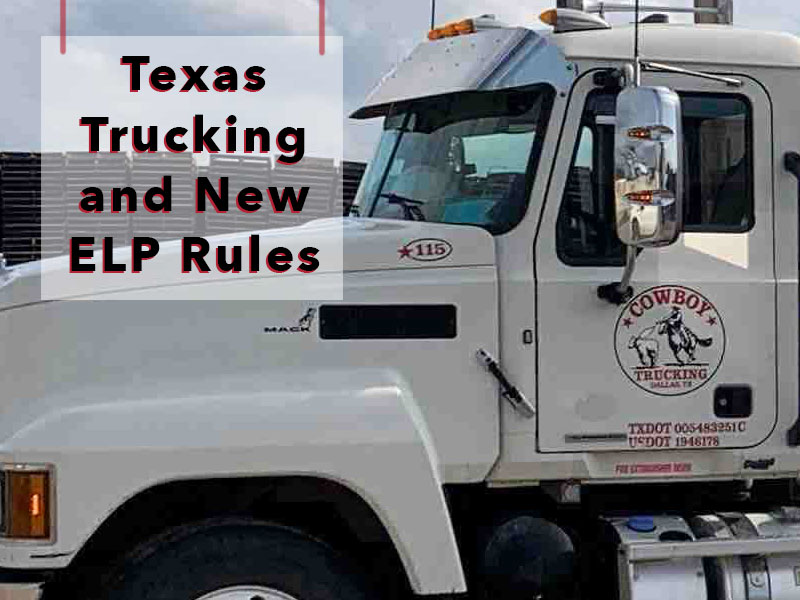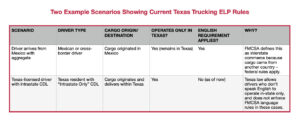
As of June 2025, truck drivers can now be taken off the road if they can’t demonstrate enough English to communicate clearly during inspections. That’s a big deal for Texas trucking, especially for general contractors and site managers counting on dependable deliveries.
The rule itself isn’t new. The Federal Motor Carrier Safety Administration (FMCSA) has required interstate drivers to speak and understand English for many years. What’s changed is enforcement.
As of this summer, officers across the country – including in Texas – are placing drivers Out-of-Service if they can’t pass basic English checks during roadside inspections.
The reasoning behind it is safety: If a driver can’t understand road signs or communicate with officials, they pose a risk to others on the road. This renewed focus follows incidents where language barriers contributed to serious accidents.
Let’s look at Texas trucking and why this changes things.
What Makes Texas Trucking Unique?
For years, Texas has allowed drivers who operate only within Texas to get a commercial license even if they don’t speak English.
That policy remains in place, but there’s a catch: Once the freight, route, or job involves any link to interstate commerce – even if the truck stays within Texas borders – the federal rules apply.
Interstate commerce is now, by definition, the cargo’s journey, not the truck’s route.
For example, a load from Laredo to Dallas might still count as “interstate” if either the cargo originated in Mexico or it’s headed to another state after delivery. In those cases, drivers who don’t meet FMCSA’s English requirement are now at risk of losing their job.
Why This Matters to Construction Contractors
The reason is that any disruption in the delivery chain can affect your timelines, budgets, and compliance – especially if you have a large-scale infrastructure project.
If a driver is placed Out-of-Service mid-trip, it delays crucial deliveries of asphalt, steel, or equipment.
In cities like Houston, El Paso, or San Antonio, bilingual or Spanish-dominant drivers are often part of the workforce. There’s a growing awareness that this rule could
- tighten the driver pool and cause a shortage or
- increase costs as firms prioritize fully English-proficient operators.
There’s also a funding angle.
If Texas continues allowing non-English-speaking drivers to operate intrastate without federal alignment, it may risk losing key safety funding from the federal government.
That would add pressure on Texas to bring its rules in line – something many in the industry expect to happen in the near future.
So – while nothing has changed yet for local-only drivers, what does this mean for you when choosing a trucking partner?
What to Ask Your Texas Trucking Partner
Among the many things we advise you to ask prospective partners, there are now other questions to bring up:
1 Ask whether the company’s drivers could confidently pass an English conversation during a roadside inspection.
2 Then ask how the hauler determines whether a job qualifies as intrastate or interstate – especially if the cargo has a connection beyond state lines.
3 It’s also worth knowing whether the trucking company is offering support or training – for example, offering EFL classes – to help drivers meet the new standard.
4 Finally, ask how closely they’re tracking changes in Texas enforcement, which could shift with little warning.
Texas Trucking is Safe with Cowboy
At Cowboy Trucking, we’re fully aware of FMCSA’s new requirements for interstate hauls. And we continue to support our intrastate drivers with full transparency.
If you’re managing high-pressure timelines or federally funded infrastructure jobs, this new rule isn’t just legal detail. We recognize it’s an operational risk for you.
You can be confident we’re ready to get your job done within the rules. If you’re looking for dump truck hauling near me, give us a call today.
Image © cowboytruckingdfw.com

